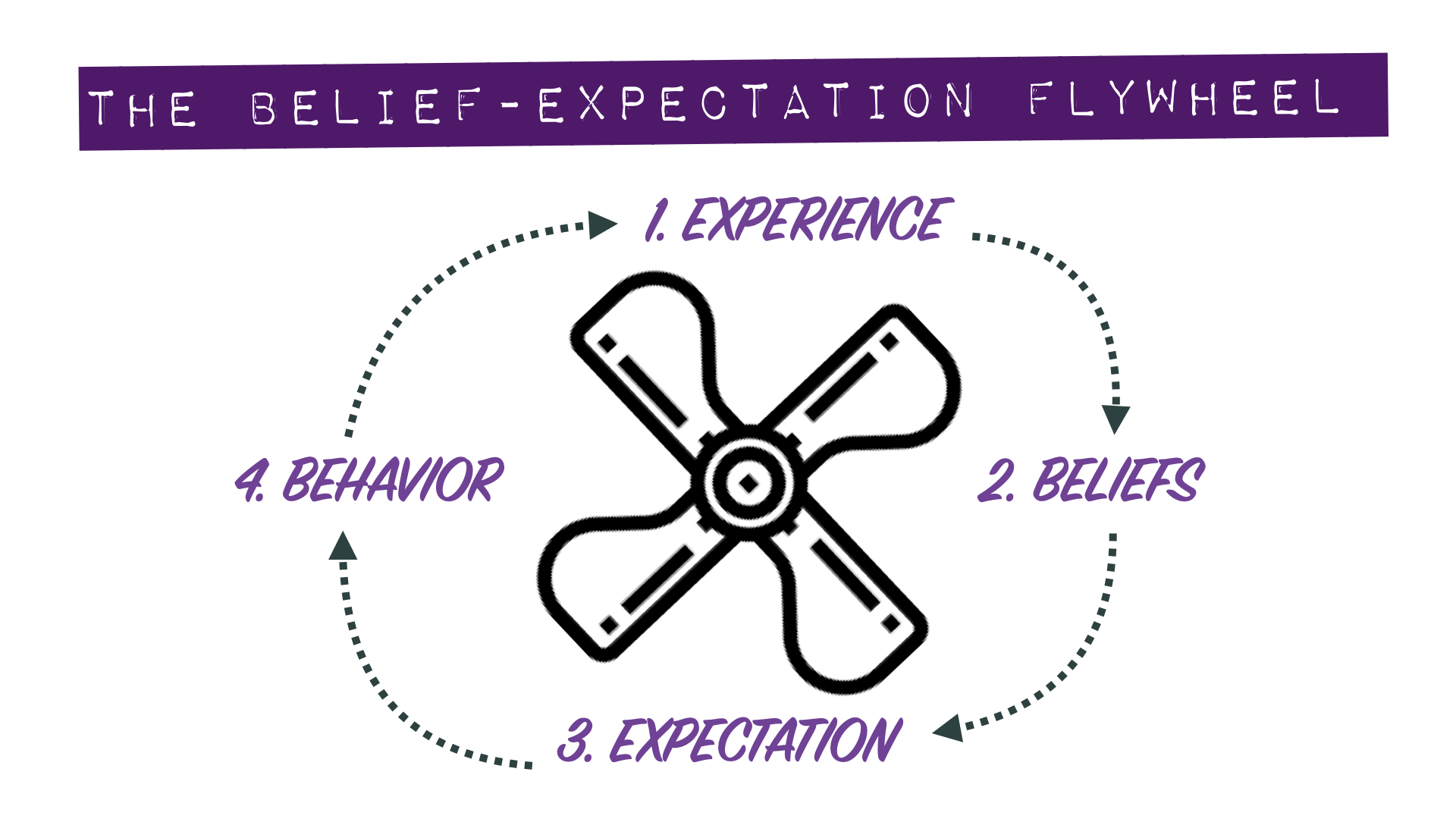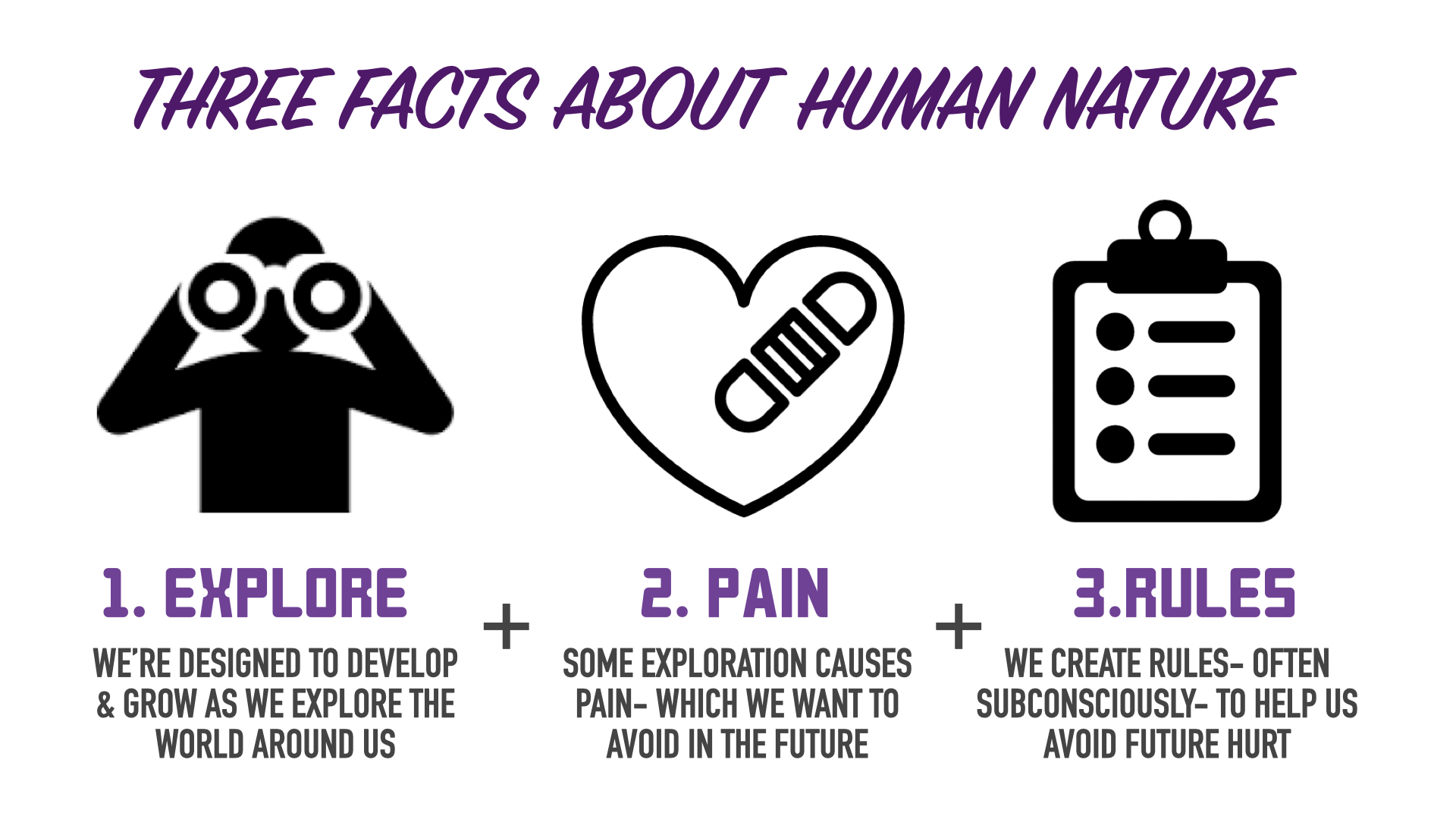Video: Some ruts are good, some aren't so good
The Belief-Expectation Flywheel, as I labelled it, describes how our soul works—
- We experience something. It might be positive or negative.
- We form specific belief patterns based on what we experienced, especially as we begin to recognize repeating themes.
- We create expectations for the future based on our past experiences. The stronger— and more negative— these experiences are, the more likely they are to “trigger” a reaction, even an unwarranted one.
- We behave in the present based on the past, rarely realizing that our behaviors actually affect how we experience life.
Of course, the loop continues indefinitely, each new experience cementing our beliefs and expectations for the next run around the wheel.

The rules fall into two categories. They can be functional rules or they can be dysfunctional rules…”
He described them as you might imagine:
Functional rules actually help us. They keep us from pain in healthy ways.
- Rules that keep us from touching hot stoves are helpful.
- Rules that keep us from walking down dark alleys at night, swimming in the ocean alone, or walking into oncoming traffic are healthy.
- Rules that caution us to take an Uber if we’re going to drink at dinner serve us.
You get the idea. Rules— even the ones we don’t think about— can serve us.
Dysfunctional rules hinder us. They keep us from progress in harmful ways.
They’re based on perceptions of reality and are often consistent with our past experience. Think back to the mortar fire and bullets.
(By the way, sometimes these rules have a basis in past reality, sometimes they don’t. Sometimes, they’re consistent with our past perceptions only.)

The Daily
Grace-infused e-votionals full of hope + practical wisdom delivered to your inbox early every morning.


